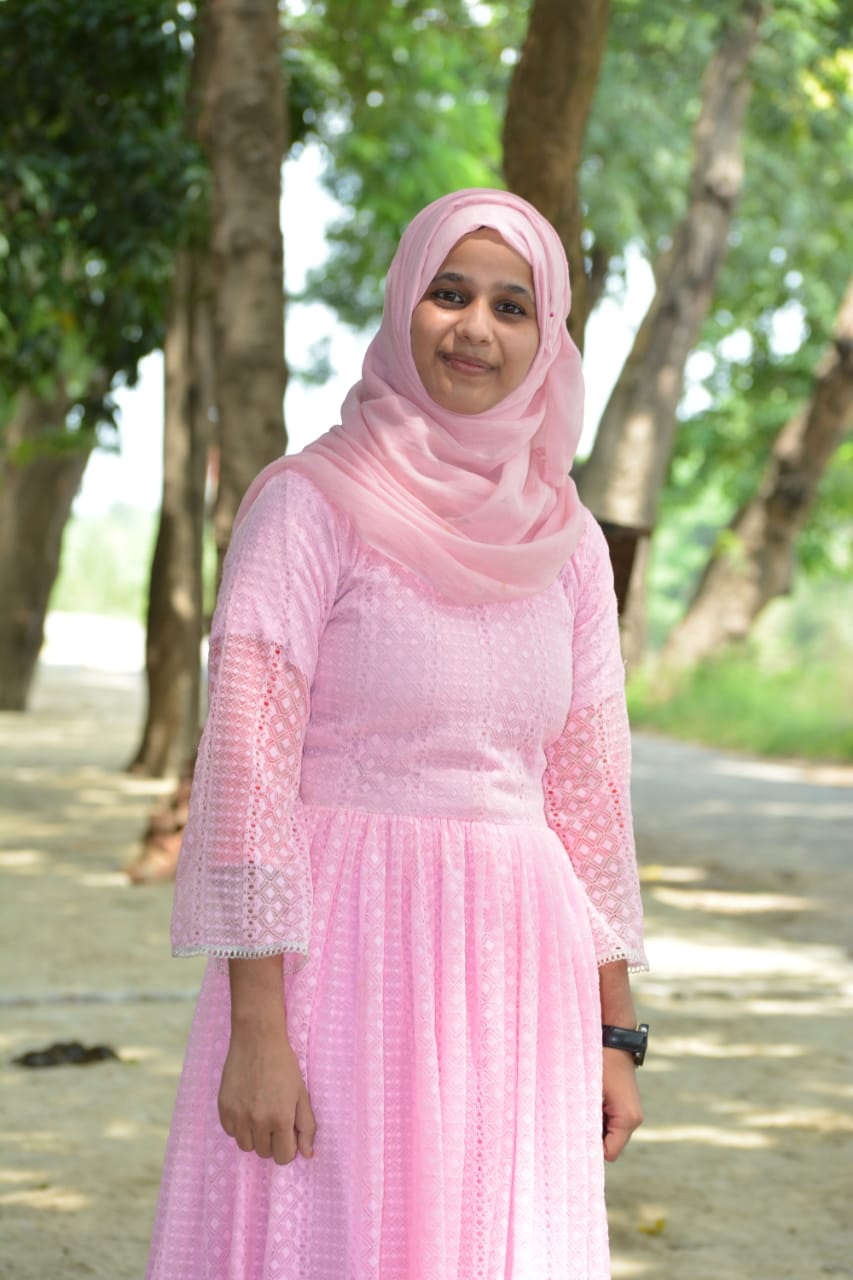(September 3, 2023) Growing up in the nondescript village of Sisola in Uttar Pradesh, Hina Saifi’s dream of education was restricted only till Class 8, as the village had only one school that was uptil eighth standard. But understanding the importance of education and seeing her daughter’s keen interest in studies, her mother, against her father’s wish, sent Hina to her aunt’s place in Khatauli, a few hours from Sisola, to complete her 10th standard. Apart from family support, Hina needed finances to keep her dream of education alive. In a village where men worked in stone quarries and women in football factory, Hina, too, worked part-time earning ₹20 for stitching a football, to support her education.

Hina Saifi
It was education that opened the floodgates of knowledge and awareness for her, including climate crisis. In no time, she became a climate action champion and made it to the list of 17 United Nation’s Climate Change leaders for its India campaign #WeTheChangeNow. “If there’s public awareness first, then we can improve the environment. It will happen if people are aware of climate-friendly behaviours and actions. This is why I want to work in the space of public awareness and mobilization,” she said in an interview.
It was lack of environmental and climate awareness in her village coupled with pollution that prompted Hina to take action, and work on the lines of climate change. “I was also the first girl from my village to travel to Lucknow and be part of the Climate Agenda initiative in 2018. I learned about air pollution, the air quality index, and understood that fighting climate change is our collective responsibility and not just of the government,” she said in an interview.
At a young age Hina understood that lack of education can lead to other issues, including pollution, improper disposal and drainage system. She saw the ponds in her village filled with garbage and drains overflowing. She knew education was the only route to make people aware of the issues. But her biggest challenge was convincing elders to send their children to school. With most children employed in stone quarries and football factory, parents were happy that they were lending a helping hand financially, and weren’t too keen to send their kids to school.


That’s when she joined hands with her teacher and visited people in the village, convincing children to not drop out. Moreover, she became an active member of a local NGO, N Block, and started attending workshops and sessions on climate change. Hina didn’t leave any stone unturned to convince the villagers to send their kids to school and told them education was the only way to understand the importance of climate change and cleanliness. She believes that change happens at the grassroot level. “I work hard to bring about public awareness and to mobilise positive action through activities like pamphlet distribution, public meetings, door-to-door visits, and surveys. I firmly believe that when individuals change micro-behaviours, they can bring about massive transformational change,” added the climate activist.
Her hardwork and persistence helped create a difference as more children have enrolled in the schools now. The Global Indian has become a role model for many children in her village and now many parents want their kids to be like Hina. Moreover, she had led the plantation drive in her village, and often discusses new projects with the village Pradhan.
“Dear human don’t become elements of destruction @Climate is changing
Protect your possession pic.twitter.com/rWzZ8LGEIz— Hina Saifi (@HinaSai03267365) September 16, 2021
Hina, who is currently pursuing an MBA from the Bharti Institute of Technology, Meerut, is among 16 women champions who have been given a platform to address the climate crisis by the Women Climate Collective (WCC). “The Women Climate Collective has given us a platform to raise our voice on environment-related issues. These powerful voices of women will go far in achieving the objective of fighting change and bringing in socio-economic development.”
- Follow Hina Saifi on X




